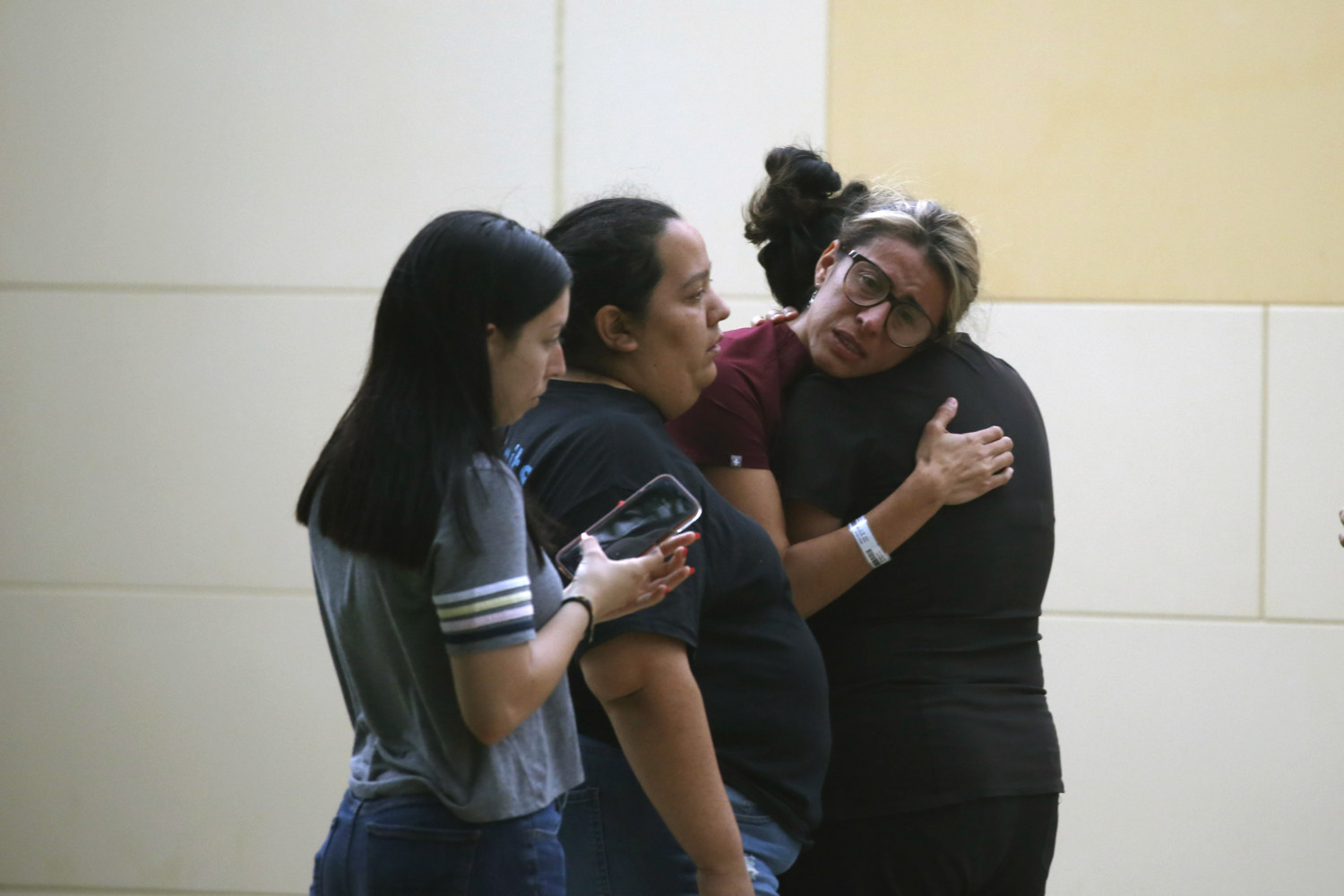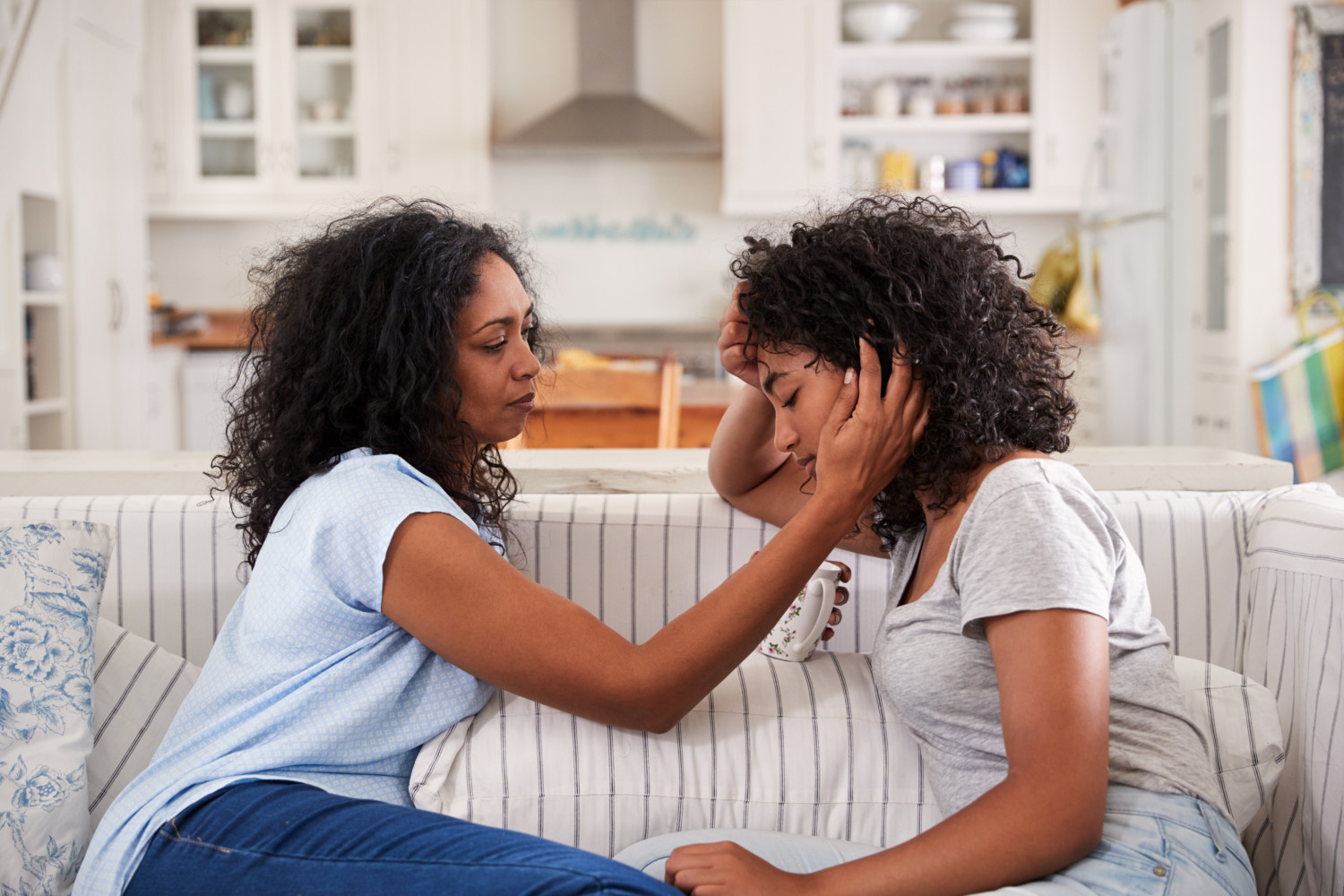Yesterday, the deadliest school shooting took place since a gunman killed 20 children and six educators at Sandy Hook Elementary in Newtown, Connecticut, 10 years ago. Details are still trickling out, but at least 19 second- through fourth-graders and two adults lost their lives at Robb Elementary in Uvalde, Texas. The 18-year-old shooter, who shot his grandmother and abandoned his vehicle before making his way to the predominantly Hispanic school, was reportedly killed in an altercation with law enforcement agents.
NPR reports that, in 2022, there have been 27 school shootings resulting in injury or death this year, with 200 mass shootings overall. With gun violence and young victims in the news so often, families are once again being forced to discuss a horrifying event, along with issues of safety, with their children.
“I think it’s really important to have open access and dialogue with children about these things, especially some of the older children in the school who are able to process it a little bit different,” Dr. Brent D. Kaziny, medical director of emergency management at Texas Children’s Hospital, told Austin, Texas-based KXAN.

But how can you discuss a tragedy of this magnitude appropriately with children, in a way that won’t traumatize them further, and in a way that makes them feel safe? Parenting expert Dr. Deborah Gilboa told “Today” that the first thing parents or caregivers should do is process the news themselves. First reactions should be experienced away from your child, as “what you do will affect them more than what you say,” Gilboa noted.
That isn’t to say you shouldn’t be showing or talking about your fear or anxiety with them, but you should take care in how you respond in front of a child. Different age groups will react differently, so you need to use age-appropriate language and methods. Here are some tips on how to impart such news in a productive way.

Make It Simple For Children Under 8
Gilboa says that children under age 8 will struggle to process this type of news, so younger kids may not need to hear about the shooting at all. But if there’s a possibility they might learn the news from another source, parents should provide the information first. When doing so, parents should tell a factual story that’s just one sentence long and that focuses on the positives, such as the people who were the heroes in the incident. Remind children that they are safe.

Be Ready To Answer Questions From Older Children And Tweens
The National Association of School Psychologists (NASP) says that older children will be more vocal about asking questions about safety and about what administrators and others at their schools are doing to keep them safe. You can discuss local efforts with them, but also keep in mind that they may need some help separating fantasy and reality.
This can become an opportunity for parents and children to connect, as this age group may be better equipped than younger children to hear about a parent’s beliefs and feelings — but listening to your child’s thoughts and emotions on the subject should come first.
“(This becomes) a great conversation of their values and your values that do not focus on the particular gore [but] more on the person you are raising,” Gilboa told “Today.”

With Teens, Focus On Creating Change
The NASP says that teens will have strong opinions about the news, along with concrete suggestions about how to implement solutions. It suggests stressing the role that students play in maintaining safe schools: For example, advise them to encourage the reporting of strangers and threats to school safety and access support for mental or emotional health when needed. This can be a good opportunity to teach children about how to go about working for causes they care about.
Katherine Williams, a child and adolescent psychologist and professor of psychiatry at University of California San Diego, told the Los Angeles Times that more detailed conversations with children at this age can also be more casual, depending on the teen. But do allow them to spend more time with friends, if needed, as this helps them build up their support networks going forward.

Go On Normally, But Give Them A Way To Express Their Feelings
Children may not be able or willing to express how they feel upon hearing about traumatic news, so encourage them to draw, build, act it out, take action or otherwise channel their emotions. However, as Jane Ripperger-Suhler, a child psychiatrist at Seton’s Texas Child Study Center, told the Austin American-Statesman in 2017, it’s important to keep up normal routines and make sure children go back to school.
Limit Their Access To News And Social Media
Images will stick in children’s minds longer than words, so make sure they don’t have as much access to television news, social media, and Internet-based information while the news cycle is focused on the school shooting.
“Every time they watch the news, they feel like it’s a new event as opposed to repetition of the same event,” Johns Hopkins University child and adolescent psychiatrist Carol Vidal told the Los Angeles Times in 2019 about how viewing traumatic scenes on television might affect younger children. “It’s important for them not to watch too much.”
This is also true for teens. They may be better able to discern differences that young kids can’t, but exposure to graphic details isn’t good for them either.

Check In With Your Child
Fortunately, Dr. Jamie Howard of the Trauma and Resilience Service at the Child Mind Institute notes that parents may worry more than their kids ever will. She says that a developmentally appropriate selfishness may protect younger kids from the kind of anxiety parents face.
“When children are younger they’re more egocentric. As they get to become teenagers this changes,” she explained in an article on the Child Mind Institute website.
Still, you’ll want to make sure their mental health doesn’t suffer. So, make yourself available to talk with your child and let them know that you’re there. Put together a safety plan if that will help them feel more secure. And pay attention to changes in mood, behavior, appetite or sleep. If your child seems to be avoiding others or having more tantrums, they may be suffering from anxiety or fear as a result of trauma.
Pay special attention to special needs children, children who suffer from depression or other mental illness, or those who have had a past traumatic experience. And get professional help sooner rather than later.
This story originally appeared on Simplemost. Checkout Simplemost for additional stories.


